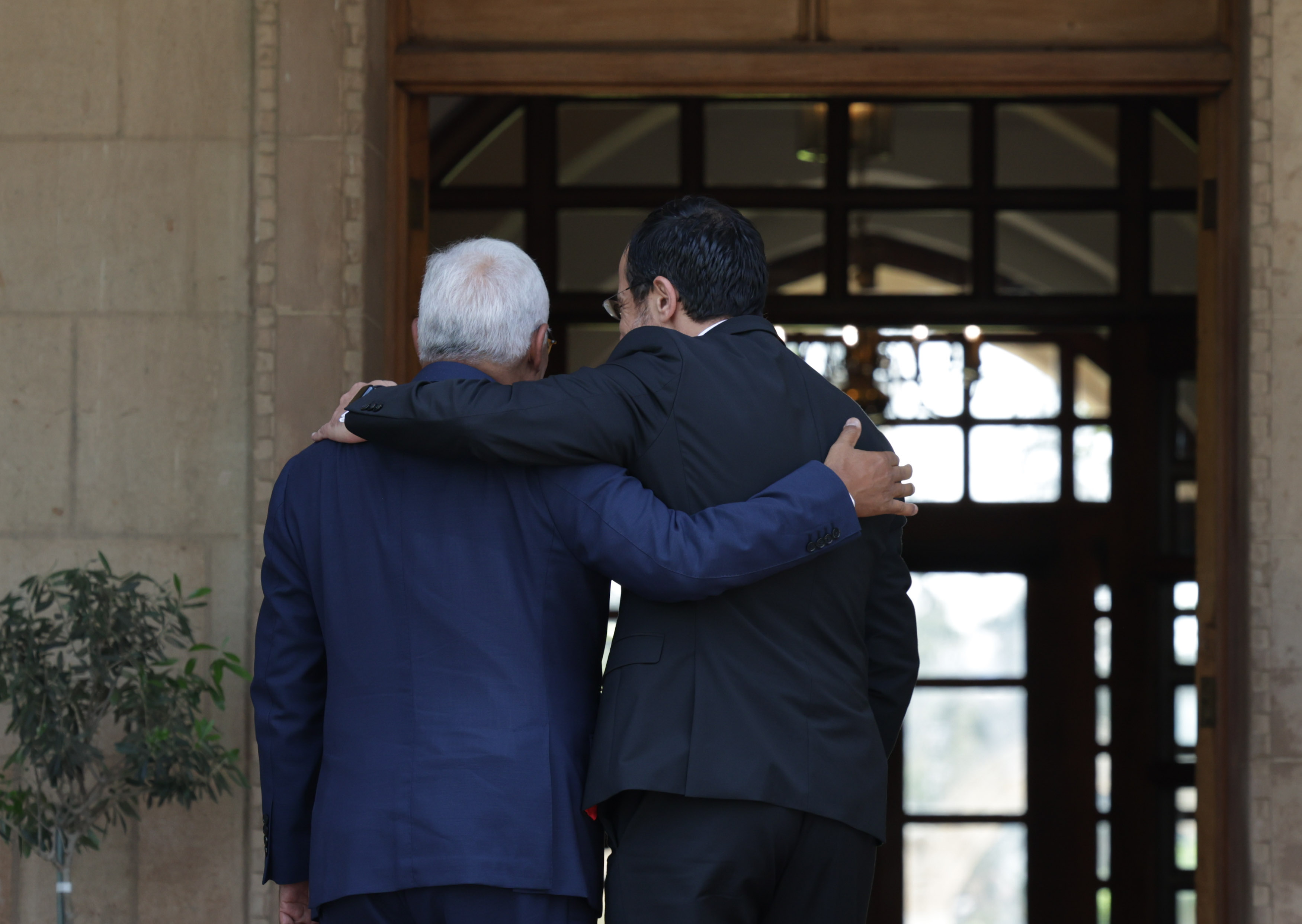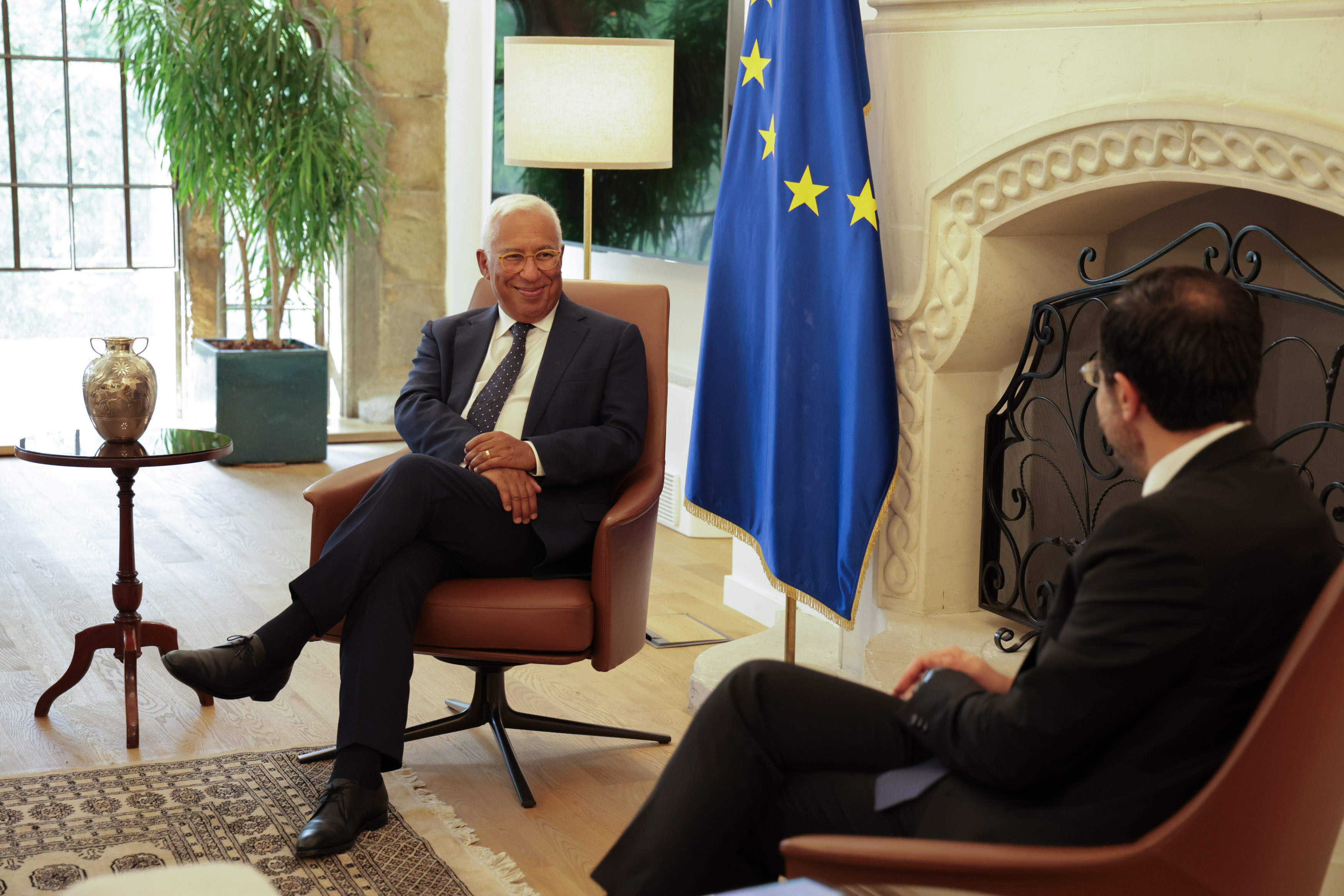Cyprus’ tenure as the Council of the European Union’s rotating presidency comes at “a very critical moment for peace in Europe”, European Council president Antonio Costa said on Monday.
Speaking after a meeting with President Nikos Christodoulides at the presidential palace, he said Europe is being “called upon to manage the Russian invasion of Ukraine, where we need to increase investment and in our own security”.
“Security means an increase in our defence capability and the protection of our citizens and societies,” he said, before also making reference to European Commission president Ursula von der Leyen’s intentions to propose the creation of a new European firefighting hub in Cyprus.
He said he welcomes the move and added that “a very important issue is addressing the consequences of climate change, but also the competitiveness of the EU”.
On this matter, he said the EU will “rely” on Cyprus’ when it holds the council’s rotating presidency in the first half of next year “to reduce bureaucracy, to invest in innovation, and develop the single market”, before turning his attention to the matter of foreign policy.
“We rely on Cyprus to ensure that we come closer to the Mediterranean and the Middle East. You are in a geostrategic position which is very important for the EU as a whole, and we rely on you to strengthen our relationships with our neighbours,” he said.
He then praised Cyprus’ for its “position regarding Gaza” and the Amalthea maritime humanitarian aid corridor.
Christodoulides, meanwhile, stressed that given the fact that there are now 107 days until Cyprus undertakes the council’s rotating presidency, his government’s aim is to “work closely” with Costa and his team, and with the European Commission and the European Parliament to execute its duties.
“We will do this as an honest broker, to further promote European integration, European autonomy, make our union even stronger in a world full of challenges, which we aspire to face,” he said.
He then made reference to the multiannual financial framework” – the EU’s budget for the period covering the years between 2028 and 2034, saying that he and Costa had discussed the matter, and that further discussions are expected in the coming months.
“Difficult and long discussions are expected during our term in the presidency – discussions which are decisive for the financing of our collective priorities in the coming years,” he said.
As such, he said, Cyprus “will work closely with the EU and the member states to make substantial progress on this important issue in a timely manner”.
“It is very important to have a timely agreement on this very important issue, and at the same time, the EU’s budget reflects on the one hand the EU’s current priorities, but on the other ensures some traditionally important policies, such as cohesion”.

He also made reference to the Security Action for Europe (Safe) programme, through which Cyprus secured over €1 billion of funding for military hardware last week, saying that the EU has “moved beyond discussions” and “gone a step further to strengthen our defence capabilities”.
“Cyprus will take advantage of these new opportunities … with the aim of strengthening our own defence capabilities, strengthening our country’s deterrent power, and at the same time strengthening the EU’s strategic autonomy,” he said.
At the end of his remarks, he was asked about the prospect of Turkey receiving funding through the Safe programme and stressed that “the participation of any third country requires a defence agreement with the EU”, and that such an agreement requires the unanimous consent of all 27 member states.
“We cannot finance and give EU resources to third states which threaten member states of the EU,” he said.
On this matter, Costa said the Safe programme’s rules are “clear”.
“It is open to third countries, but to third countries which do not constitute a threat to the security of any member state. States which attack or threaten the security of a member state cannot be allowed to use Safe,” he said.







Click here to change your cookie preferences